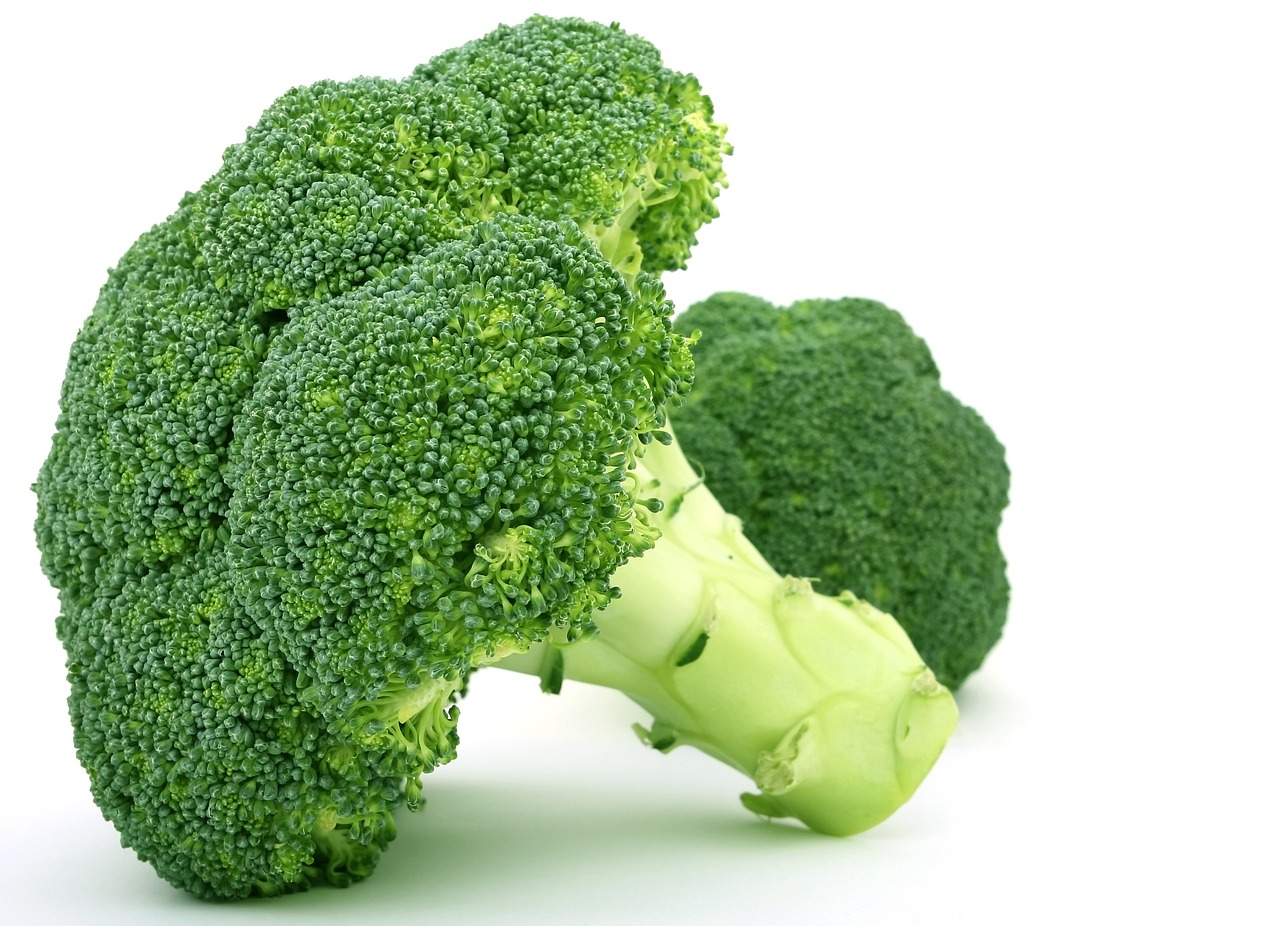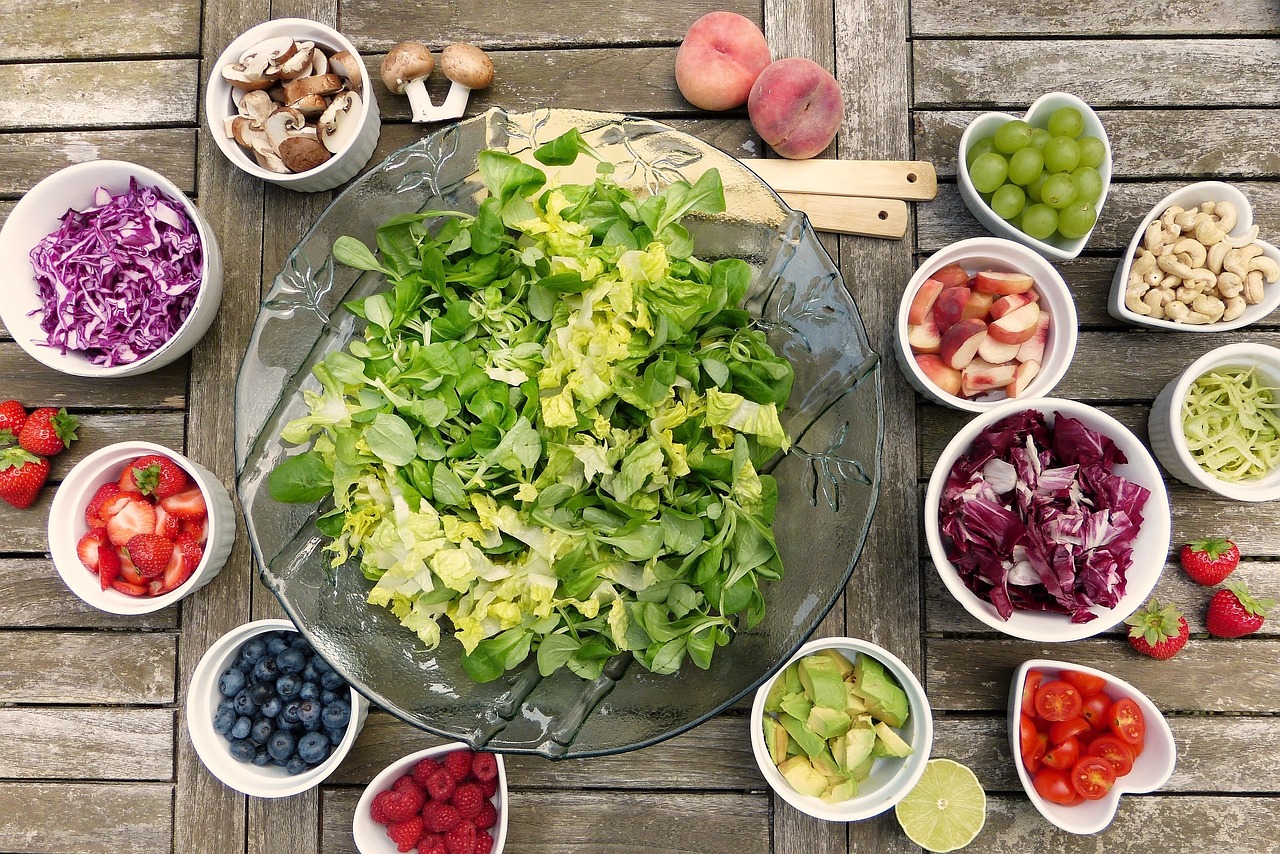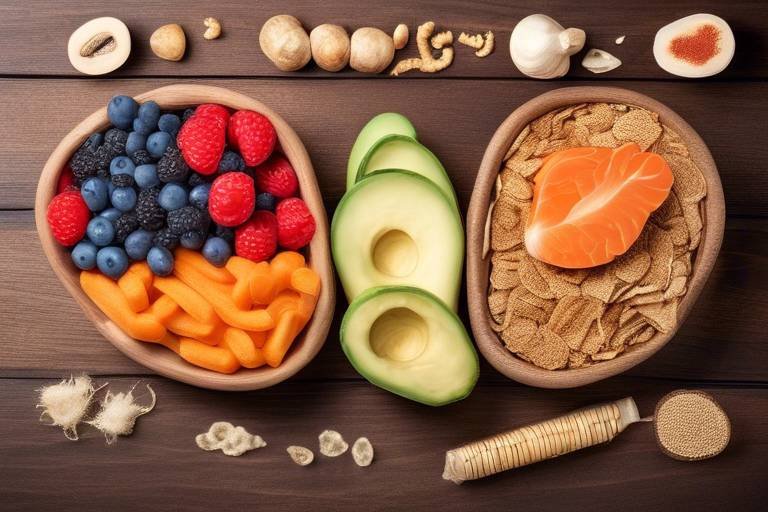Understanding the Importance of Fiber for Digestive Health
When it comes to maintaining a healthy body, fiber is one of those unsung heroes that often doesn't get the recognition it deserves. It's like the silent partner in a business deal—working tirelessly behind the scenes to ensure everything runs smoothly. But what exactly does fiber do for our digestive health, and why should we care? Well, buckle up, because we're about to dive into the fascinating world of dietary fiber and uncover its critical role in our overall well-being.
Imagine your digestive system as a bustling city, with food traveling through various highways and byways. Fiber acts as the traffic cop, directing the flow and ensuring that everything moves along at a steady pace. Without fiber, things can get a bit congested, leading to unpleasant situations like constipation. Not only does fiber help regulate bowel movements, but it also supports the growth of beneficial bacteria in your gut, creating a thriving ecosystem that aids in nutrient absorption. In short, fiber is essential for keeping our digestive systems in tip-top shape.
But don't just take my word for it! Research has shown that a diet rich in fiber can lead to numerous health benefits. From lowering cholesterol levels to stabilizing blood sugar, the advantages of incorporating fiber into your diet extend far beyond digestion. So, how do we get more of this magical nutrient into our lives? Let's explore the types of dietary fiber and the best sources to include in our meals.
Fiber plays a crucial role in digestion, acting as a natural laxative that promotes regular bowel movements. By adding bulk to the stool, it makes it easier for the body to eliminate waste. This process not only prevents constipation but also helps maintain a healthy gut microbiome, which is vital for breaking down food and absorbing nutrients efficiently. Think of fiber as the friendly neighborhood janitor, cleaning up the mess and ensuring everything runs smoothly.
There are two main types of dietary fiber: soluble and insoluble. Each type has unique properties and benefits that contribute to overall digestive health in different ways. Understanding these differences can help you make informed choices about your diet.
Soluble fiber is the type that dissolves in water, forming a gel-like substance that can help lower cholesterol levels and stabilize blood sugar. This type of fiber is not just a digestive aid; it also offers significant health benefits beyond the gut. Picture it as a sponge, soaking up excess cholesterol and preventing it from entering your bloodstream.
Common sources of soluble fiber include:
- Oats
- Beans
- Lentils
- Fruits (like apples and oranges)
- Vegetables (such as carrots and broccoli)
Incorporating these foods into your diet can enhance digestive health and overall well-being.
In addition to aiding digestion, soluble fiber supports heart health, helps manage weight, and reduces the risk of chronic diseases. It's like a multi-tool for your health, addressing various issues all at once. So, if you're looking to boost your diet, soluble fiber should be at the top of your list.
On the flip side, we have insoluble fiber, which does not dissolve in water. Instead, it adds bulk to the stool and promotes regularity, helping to prevent constipation. Think of it as the sturdy scaffolding that supports your digestive structure, ensuring everything stays in place and functions well.
Insoluble fiber helps prevent digestive disorders, such as diverticulitis and hemorrhoids. It also supports a healthy weight by keeping you full longer and encouraging regular bowel movements. This type of fiber is essential for anyone looking to maintain a balanced diet and promote digestive health.
Incorporating more fiber into your diet can be simple. Here are some tips to get you started:
- Gradually increase fiber-rich foods in your meals.
- Drink plenty of water to help fiber do its job.
- Read nutrition labels to make informed choices.
By making small adjustments to your diet, you can significantly improve your digestive health and overall well-being.
1. How much fiber do I need daily?
Most adults should aim for about 25-30 grams of fiber each day, but individual needs may vary based on age, gender, and activity level.
2. Can I get too much fiber?
Yes, consuming excessive amounts of fiber can lead to digestive discomfort, such as bloating and gas. It's essential to increase your fiber intake gradually.
3. Are fiber supplements effective?
While fiber supplements can help, it's best to get your fiber from whole foods to benefit from the additional nutrients they provide.
4. What are some quick ways to add fiber to my diet?
Consider adding fruits to your breakfast, snacking on nuts, or choosing whole-grain options instead of refined grains.

The Role of Fiber in Digestion
This article explores the critical role fiber plays in digestive health, its types, sources, benefits, and how to incorporate it into your diet for optimal well-being.
Fiber is like the unsung hero of our digestive system. Imagine your digestive tract as a bustling highway; fiber is the traffic controller that ensures everything flows smoothly. It aids in digestion by promoting regular bowel movements and preventing constipation, which is crucial for maintaining overall health. When you consume fiber, it acts as a natural broom, sweeping through your intestines, helping to remove waste effectively.
Moreover, fiber plays a vital role in maintaining a healthy gut microbiome. This is the community of microorganisms living in our intestines, which is essential for breaking down food and absorbing nutrients. A balanced gut microbiome can lead to improved digestion, enhanced immune function, and even better mental health. When fiber is present, it provides nourishment for these beneficial bacteria, allowing them to thrive and do their job efficiently.
But how does fiber actually help with digestion? Well, it’s all about the two main types of dietary fiber: soluble and insoluble. Each type has its unique properties and benefits, contributing to digestive health in different ways. For instance, soluble fiber dissolves in water and forms a gel-like substance that can help slow down digestion, allowing for better nutrient absorption. On the other hand, insoluble fiber adds bulk to the stool, promoting regularity and preventing issues like constipation.
Incorporating fiber into your diet is not just about preventing discomfort; it’s about enhancing your overall digestive health. Regular fiber intake can lead to a host of benefits, including:
- Improved bowel regularity
- Reduced risk of digestive disorders
- Better nutrient absorption
- Support for a healthy gut microbiome
So, the next time you sit down for a meal, think about how you can include more fiber. It’s not only about feeling full; it’s about keeping your digestive system happy and functioning at its best. Remember, a healthy gut is the foundation of overall health, and fiber is a key player in that equation!
There are two main types of dietary fiber: soluble and insoluble. Each type has unique properties and benefits, contributing to overall digestive health in different ways.
Soluble fiber dissolves in water, forming a gel-like substance. It can help lower cholesterol levels and stabilize blood sugar, providing significant health benefits beyond digestion.
Common sources of soluble fiber include oats, beans, lentils, fruits, and vegetables. Incorporating these foods into your diet can enhance digestive health and overall well-being.
In addition to aiding digestion, soluble fiber supports heart health, helps manage weight, and reduces the risk of chronic diseases, making it an essential part of a balanced diet.
Insoluble fiber does not dissolve in water and adds bulk to the stool, promoting regularity and preventing constipation. It plays a critical role in maintaining digestive health.
Insoluble fiber helps prevent digestive disorders, such as diverticulitis and hemorrhoids. It also supports a healthy weight by keeping you full longer and encouraging regular bowel movements.
Incorporating more fiber into your diet can be simple. Gradually increase fiber-rich foods, drink plenty of water, and read nutrition labels to make informed choices for better digestive health.
Q: What are the best sources of fiber?
A: Great sources of fiber include fruits, vegetables, whole grains, legumes, nuts, and seeds.
Q: How much fiber do I need daily?
A: The recommended daily intake is about 25 grams for women and 38 grams for men, but individual needs may vary.
Q: Can I get too much fiber?
A: Yes, consuming excessive fiber can lead to digestive discomfort, so it's best to increase your intake gradually.
Q: What are the signs of fiber deficiency?
A: Signs may include constipation, bloating, and irregular bowel movements.

Types of Dietary Fiber
When it comes to dietary fiber, it’s not a one-size-fits-all situation. There are two main types of fiber that play distinct roles in our digestive health: soluble fiber and insoluble fiber. Understanding these types can help you make better dietary choices and improve your overall health.
Soluble fiber is like a sponge; it dissolves in water and forms a gel-like substance in your stomach. This gelling action slows down digestion, allowing for better nutrient absorption and helping to regulate blood sugar levels. Think of it as a gentle hug for your intestines, making everything move smoothly along. Foods rich in soluble fiber not only aid in digestion but also contribute to lowering cholesterol levels, making them a powerhouse for your heart health.
On the other hand, we have insoluble fiber, which does not dissolve in water. Instead, it adds bulk to your stool and promotes regular bowel movements. Imagine it as a broom sweeping through your intestines, clearing out waste and preventing constipation. This type of fiber is crucial for maintaining digestive health and preventing disorders like diverticulitis and hemorrhoids.
To give you a clearer picture, here’s a quick comparison:
| Type of Fiber | Soluble Fiber | Insoluble Fiber |
|---|---|---|
| Solubility | Dissolves in water | Does not dissolve in water |
| Function | Helps lower cholesterol, stabilizes blood sugar | Adds bulk to stool, promotes regularity |
| Sources | Oats, beans, lentils, fruits, vegetables | Whole grains, nuts, seeds, and the skins of fruits and vegetables |
Incorporating both types of fiber into your diet is essential for achieving optimal digestive health. While soluble fiber tends to steal the spotlight with its heart-healthy benefits, insoluble fiber plays a vital role in keeping things moving along in your digestive tract. You can think of them as the dynamic duo of fiber—each supporting your body in unique ways. So, whether you're enjoying a bowl of oatmeal topped with fruits or munching on raw veggies, you're doing wonders for your gut!
Soluble Fiber
When we talk about , we're diving into a fascinating world where digestion meets health benefits that go beyond just keeping things moving in your gut. Soluble fiber is unique because it dissolves in water, transforming into a gel-like substance that works wonders in various ways. Imagine it as a sponge that soaks up water and nutrients, creating a smooth passage for everything that travels through your digestive system. This gel-like texture not only helps in slowing down digestion but also plays a significant role in regulating blood sugar levels and lowering cholesterol.
But let’s not stop there! The benefits of soluble fiber extend into other areas of health too. For instance, it can help you feel fuller for longer, which is a game changer if you're trying to manage your weight. Think of it as nature’s way of giving you a gentle nudge toward healthier eating habits. When you include soluble fiber in your meals, you're not just aiding your digestion; you’re also doing your heart a favor by reducing cholesterol absorption and stabilizing blood sugar spikes. It's like having a multi-tool for your health right on your plate!
So, where can you find this magical soluble fiber? It's abundant in a variety of delicious foods. Here’s a quick rundown of some of the best sources:
- Oats: Start your day with a warm bowl of oatmeal.
- Beans: Add some black beans or chickpeas to your salads.
- Lentils: Perfect for soups and stews.
- Fruits: Apples, oranges, and berries are all excellent choices.
- Vegetables: Carrots and Brussels sprouts pack a soluble fiber punch.
Incorporating these foods into your diet is not just beneficial; it can be a delicious journey. Think about mixing oats with your favorite fruits for breakfast or tossing some lentils into your salad for lunch. The possibilities are endless, and your body will thank you for it!
To wrap it up, soluble fiber is more than just a digestive aid; it's a powerhouse of health benefits. By making simple changes to include more soluble fiber in your meals, you’re taking a proactive step toward better health. It's like giving your body a little extra love with every bite!
Q: What are the main benefits of soluble fiber?
A: Soluble fiber helps lower cholesterol, stabilize blood sugar levels, aids in digestion, and keeps you feeling full longer.
Q: How can I increase my soluble fiber intake?
A: You can increase your intake by incorporating foods like oats, beans, lentils, fruits, and vegetables into your meals.
Q: Is there a recommended daily intake of fiber?
A: Yes, the recommended daily intake is about 25 grams for women and 38 grams for men, but individual needs may vary.
Q: Can I get too much fiber?
A: While fiber is essential for health, too much can lead to digestive discomfort. It's best to increase your intake gradually.
Sources of Soluble Fiber
When it comes to enriching your diet with soluble fiber, variety is the spice of life! This type of fiber is not only beneficial for your digestive health but also comes from a range of delicious sources that can easily be incorporated into your meals. Imagine starting your day with a warm bowl of oatmeal; it's not just comforting but also a fantastic source of soluble fiber. Oats are known to form that gel-like substance when mixed with water, helping to lower cholesterol levels and keep blood sugar in check.
But oats aren’t the only game in town! Beans, lentils, and a plethora of fruits and vegetables also pack a soluble fiber punch. For instance, black beans and kidney beans are not just protein powerhouses; they also contribute significantly to your fiber intake. Lentils, on the other hand, are quick to cook and can be tossed into soups or salads for an extra nutrient boost.
Speaking of fruits, think about apples and oranges. These juicy delights are not only refreshing but also rich in pectin, a type of soluble fiber that can help lower cholesterol. And let’s not forget about carrots and barley, which can easily be added to a variety of dishes, making it simple to up your fiber intake without sacrificing flavor.
To give you a clearer picture, here’s a quick table summarizing some common sources of soluble fiber:
| Food Source | Type of Soluble Fiber | Health Benefits |
|---|---|---|
| Oats | Beta-glucan | Helps lower cholesterol |
| Beans (e.g., black beans, kidney beans) | Various | Rich in protein and fiber |
| Lentils | Various | Supports heart health |
| Fruits (e.g., apples, oranges) | Pectin | Regulates blood sugar |
| Vegetables (e.g., carrots) | Various | Enhances digestive health |
| Barley | Beta-glucan | Promotes healthy gut |
Incorporating these foods into your daily meals can be both enjoyable and beneficial. Whether you're blending a smoothie with some bananas and oats or whipping up a hearty lentil soup, the options are endless. So, why not get creative in the kitchen? Your digestive health will thank you!
- What is soluble fiber? Soluble fiber dissolves in water and forms a gel-like substance, helping to regulate digestion and lower cholesterol.
- How much soluble fiber should I consume daily? Aim for at least 25 grams of total fiber per day, with a good portion being soluble fiber for optimal health benefits.
- Can I get soluble fiber from supplements? While supplements are available, it's best to obtain fiber from whole food sources for maximum benefits.
- What are the signs of a fiber deficiency? Symptoms may include constipation, bloating, and irregular bowel movements. Increasing fiber intake can help alleviate these issues.
Health Benefits of Soluble Fiber
Soluble fiber is like the unsung hero of your diet, quietly working behind the scenes to provide a multitude of health benefits that go beyond just aiding digestion. One of its most significant roles is in lowering cholesterol levels. When soluble fiber dissolves in water, it forms a gel-like substance that binds to cholesterol in the digestive system, preventing its absorption into the bloodstream. This can lead to a healthier heart and a reduced risk of heart disease, which is a win-win for anyone looking to improve their overall health.
Moreover, soluble fiber is a champion for blood sugar regulation. By slowing down the absorption of sugar, it helps maintain stable blood sugar levels, making it especially beneficial for individuals with diabetes or those at risk of developing the condition. Imagine your blood sugar levels as a rollercoaster; soluble fiber acts like a safety harness, keeping you steady and preventing those wild drops and climbs that can lead to fatigue and cravings.
But wait, there’s more! Soluble fiber also plays a vital role in weight management. Foods high in soluble fiber tend to be more filling, which means you’re less likely to overeat. Think of it as a natural appetite suppressant, keeping you satisfied longer and reducing those pesky snack attacks. Plus, the gel-like consistency of soluble fiber can help slow down your digestion, which further contributes to that feeling of fullness.
In addition to these benefits, soluble fiber is known to support a healthy gut microbiome. It acts as a prebiotic, providing nourishment for the good bacteria in your gut. This is crucial for maintaining a balanced digestive system, as a healthy microbiome can enhance nutrient absorption and even boost your immune system. So, when you think of soluble fiber, picture a bustling city of beneficial bacteria thriving on the nutrients you provide them through your diet.
To sum it all up, the health benefits of soluble fiber are vast and varied. From lowering cholesterol and stabilizing blood sugar to aiding in weight management and supporting gut health, incorporating soluble fiber into your meals can lead to a healthier, happier you. So why not start today? Your body will thank you!
- What are some good sources of soluble fiber? Common sources include oats, beans, lentils, apples, and citrus fruits.
- How much soluble fiber should I consume daily? Aim for at least 25-30 grams of total fiber per day, with a portion coming from soluble fiber.
- Can I get too much fiber? While fiber is essential, too much can lead to digestive discomfort. It's best to increase your intake gradually.
Insoluble Fiber
Insoluble fiber is a powerhouse when it comes to maintaining digestive health. Unlike its soluble counterpart, this type of fiber does not dissolve in water. Instead, it adds bulk to your stool, which helps food move through your digestive tract more smoothly. Think of it as the broom that sweeps everything along, ensuring that your system operates efficiently and effectively. Without adequate insoluble fiber in your diet, you might find yourself facing uncomfortable situations, such as constipation or irregular bowel movements.
One of the most significant benefits of insoluble fiber is its ability to promote regularity. By increasing the bulk of your stool, it helps to stimulate the intestines, reducing the likelihood of digestive disorders. For instance, conditions like diverticulitis, which can cause painful inflammation in the intestines, can often be mitigated by a diet rich in insoluble fiber. Additionally, hemorrhoids, which can be exacerbated by straining during bowel movements, can also be alleviated by ensuring you consume enough of this fiber type.
So, where can you find this fantastic fiber? You might be surprised to learn that insoluble fiber is abundant in a variety of foods. Here are some common sources:
- Whole grains (like brown rice and whole wheat bread)
- Vegetables (especially the skins, such as potatoes and carrots)
- Nuts and seeds
- Legumes (like chickpeas and lentils)
Incorporating these foods into your daily meals can be as simple as opting for whole grain bread instead of white or adding a side of steamed broccoli to your dinner plate. The beauty of insoluble fiber is that it not only contributes to digestive health but also helps you feel fuller for longer. This means you’re less likely to snack on unhealthy options, which can be a great ally in maintaining a healthy weight.
To sum it up, insoluble fiber plays a critical role in your digestive system. By promoting regular bowel movements, preventing constipation, and reducing the risk of digestive disorders, it is an essential component of a balanced diet. So, the next time you’re planning your meals, remember to include plenty of these fiber-rich foods to keep your digestive system happy and healthy!

Health Benefits of Insoluble Fiber
Insoluble fiber is like the unsung hero of the digestive world. It doesn’t dissolve in water, but rather acts as a bulking agent that keeps things moving smoothly through your digestive tract. Think of it as a trusty broom sweeping away the debris in your intestines, ensuring everything stays clean and orderly. This type of fiber is crucial for maintaining digestive health and preventing a variety of issues. For instance, it plays a key role in preventing digestive disorders such as diverticulitis and hemorrhoids, both of which can be quite uncomfortable and disruptive to your daily life.
Moreover, insoluble fiber helps to keep you feeling full longer. This satiety can be a game-changer for those looking to manage their weight. When you consume foods rich in insoluble fiber, you’re not just filling your stomach; you’re also providing your body with the bulk it needs to signal to your brain that it’s time to stop eating. This can lead to healthier eating habits and a more balanced diet overall.
Additionally, the benefits of insoluble fiber extend beyond just preventing constipation. Regular intake can lead to a healthier gut microbiome, which is essential for overall health. A well-functioning gut can enhance nutrient absorption and may even improve your immune system. When your digestive system is happy, your entire body tends to follow suit!
| Health Benefits of Insoluble Fiber | Description |
|---|---|
| Prevention of Digestive Disorders | Helps prevent conditions like diverticulitis and hemorrhoids. |
| Weight Management | Increases satiety, helping you feel full longer and reduce overeating. |
| Improved Gut Health | Supports a healthy gut microbiome, enhancing nutrient absorption. |
So, if you’re wondering how to incorporate more insoluble fiber into your diet, think about adding foods such as whole grains, nuts, seeds, and the skins of fruits and vegetables. These foods not only aid in digestion but also contribute to overall health and well-being. Remember, the journey to better digestive health starts with small changes, and increasing your intake of insoluble fiber is a fantastic place to begin!
- What foods are high in insoluble fiber? Foods such as whole grains, wheat bran, nuts, and the skins of fruits and vegetables are excellent sources of insoluble fiber.
- How much fiber do I need daily? The recommended daily intake of fiber is about 25 grams for women and 38 grams for men, but individual needs may vary.
- Can too much fiber be harmful? While fiber is essential for health, consuming it in excessive amounts without adequate hydration can lead to digestive discomfort.

How to Increase Fiber Intake
Incorporating more fiber into your diet can feel like a daunting task, but it doesn't have to be! Think of it as adding a splash of color to your meals—once you start, you'll wonder how you ever lived without it. The key is to gradually introduce fiber-rich foods into your daily routine. This way, your digestive system can adjust without feeling overwhelmed. So, where do you start?
First off, make a plan. Start by identifying the meals where you can easily add fiber. For breakfast, consider swapping out your usual cereal for a bowl of oatmeal topped with fruits and nuts. Not only will this keep you full longer, but it also adds a delightful crunch to your morning routine. If you're a fan of smoothies, toss in some chia seeds or flaxseeds for a fiber boost. These tiny seeds pack a powerful punch!
Another fantastic way to increase your fiber intake is by snacking wisely. Instead of reaching for those chips or cookies, opt for fresh fruits, raw veggies, or whole-grain crackers. If you find yourself craving something crunchy, try air-popped popcorn. It's a fun, satisfying snack that can help fill you up without empty calories.
Don't forget about hydration! When you increase your fiber intake, drinking plenty of water is crucial. Think of fiber as a sponge; it needs water to expand and do its job effectively. Aim for at least eight glasses a day, and you’ll not only feel better but also enhance your digestive health.
Reading nutrition labels is another great strategy. It’s like being a detective in the grocery store! Look for products that have at least 3 grams of fiber per serving. Whole grain breads, cereals, and pasta are excellent choices. You might be surprised at how many options are available that are both tasty and fiber-rich.
To make it easier, here’s a quick table summarizing some fantastic fiber sources and their benefits:
| Food Source | Type of Fiber | Health Benefits |
|---|---|---|
| Oats | Soluble | Lowers cholesterol, stabilizes blood sugar |
| Beans | Soluble & Insoluble | Promotes fullness, aids digestion |
| Fruits (like apples and berries) | Soluble | Rich in vitamins, supports heart health |
| Vegetables (like broccoli and carrots) | Insoluble | Enhances digestive health, prevents constipation |
| Whole grain bread | Insoluble | Helps maintain a healthy weight |
Finally, remember that consistency is key. Make a conscious effort to include fiber in every meal. Even small changes can lead to significant improvements in your digestive health over time. So, enjoy the journey of discovering new foods and flavors while giving your body the fiber it craves!
1. What is the recommended daily fiber intake?
Most health experts recommend about 25 grams per day for women and 38 grams for men. However, individual needs may vary based on age and activity level.
2. Can I get too much fiber?
Yes, consuming too much fiber too quickly can lead to digestive discomfort. It's best to increase your intake gradually and drink plenty of water.
3. Are fiber supplements effective?
While fiber supplements can help, it's best to get your fiber from whole foods for maximum health benefits. Foods provide additional nutrients that supplements may lack.
4. Can fiber help with weight loss?
Absolutely! Fiber-rich foods are often low in calories and high in volume, which can help you feel full longer and reduce overall calorie intake.
Frequently Asked Questions
- What is dietary fiber and why is it important?
Dietary fiber is a type of carbohydrate that the body cannot digest. It plays a crucial role in maintaining digestive health by promoting regular bowel movements, preventing constipation, and supporting a healthy gut microbiome. Think of fiber as a broom that sweeps through your digestive system, keeping everything clean and functioning smoothly!
- What are the main types of dietary fiber?
There are two main types of dietary fiber: soluble and insoluble. Soluble fiber dissolves in water and forms a gel-like substance, helping to lower cholesterol and stabilize blood sugar levels. Insoluble fiber, on the other hand, adds bulk to the stool and aids in regularity. Both types are essential for a healthy digestive system, like two sides of the same coin!
- What are some good sources of soluble fiber?
Common sources of soluble fiber include oats, beans, lentils, fruits (like apples and citrus), and vegetables (such as carrots). Incorporating these foods into your meals can significantly boost your fiber intake and enhance your overall health.
- How does insoluble fiber benefit my digestive health?
Insoluble fiber is vital for preventing digestive disorders such as diverticulitis and hemorrhoids. It helps keep you full longer, which can support weight management, and promotes regular bowel movements by adding bulk to your stool. It’s like the trusty sidekick that ensures your digestive system runs like a well-oiled machine!
- How can I increase my fiber intake effectively?
To boost your fiber intake, start by gradually incorporating more fiber-rich foods into your diet. Think of it as a gentle climb up a hill rather than a sprint! Drink plenty of water to help fiber do its job, and don’t forget to check nutrition labels for fiber content. Small, consistent changes can lead to significant health benefits over time!



















